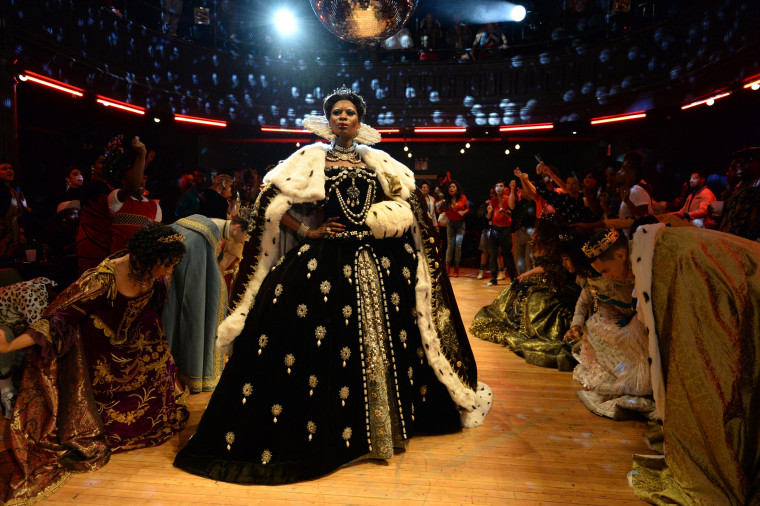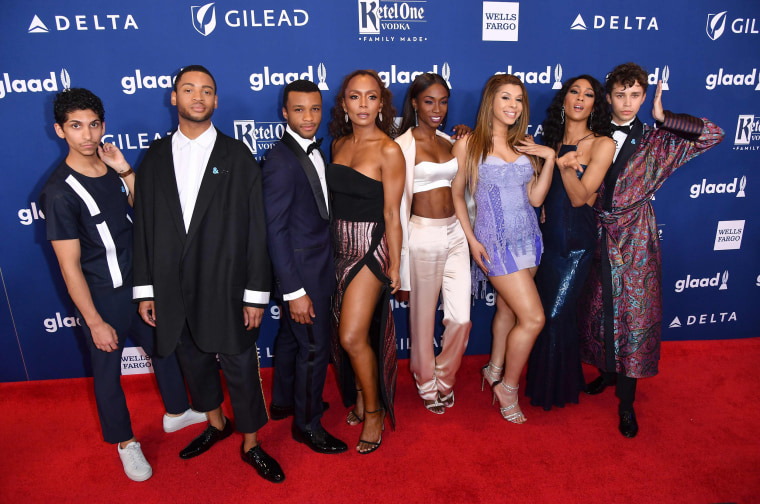Ryan Murphy's final series for the FX network, “Pose,” premiered on Sunday, June 3. The show works hard to bring the outrageous and over-the-top culture of drag balls of the late 1980s to life. But this isn’t just a peepshow into the underground LGBT subculture. It is the best network family drama of 2018, and perhaps even the best to hit airwaves since “This Is Us” premiered at the end of 2015.
Make no mistake, “Pose” has a lot of fun with the unique cultural aspects of its primary subject. Star (and Tony winner) Billy Porter deserves to be the meme of the summer with his drawling “The Category Is!” introductions. The show serves as an education for those who know little about the concept of balls outside of Madonna’s hit single “Vogue,” while honoring those who are already familiar. There are no less than 18 classic 1980s tracks in the premiere episode alone and the costumes are amazing — wittily satirizing aspects of upperclass white New York culture, while also showing just how much some of those in attendance want to “pass” as part of it.
While the family members in this case may have “found” one another later in life, this chosen family is just as loving and full of tears and laughter as the Pearsons on “This Is Us.”
But the heart and soul of "Pose" is its cast. The show’s credits may start with a list of white actors, but the real topliners of the series are its gay and transgender characters of color. They form a tight-knit family of their own creation, the House of Evangelista; but while these family members may have found one another later in life, this chosen family is just as loving and full of tears and laughter as the Pearsons on “This Is Us” or the Johnsons on “black-ish.” Indeed, the episode’s storylines are often fashioned like traditional family drama; there’s even a Christmas episode, complete with a dinner disaster.
These extraordinarily familiar tropes further emphasize the universal nature of family — queer or straight, we all need a tribe to call our own. The moments are tweaked to fit the parameters of "Pose's" characters — sitting down with “mother” to have “the talk” before dating seriously, in this context, includes frank discussions of a type I have never seen depicted on television. Not in recent memory has a series so realistically portrayed the reality of AIDS testing. But Ryan Murphy saves his most poignant moments for the trans characters; indeed, it could be argues this show is something of a love letter to the transgender community, sometimes bordering on schmaltzy but mostly just earnest — in a good way.
The LGBTQ actors in particular is superb. Newcomers Ryan Jamaal Swain and Indya Moore are fantastic — the former as dreamy dance student Damon, the viewer’s entry point into both the world of the ballroom, and the latter as Angel, a transgender sex worker who has less a heart of gold and more a heart that’s been repeatedly smashed ever since her birth family rejected her. Broadway actress Mj Rodriguez is house mother Blanca, trying to leave her stamp on the community before her HIV-positive status catches up with her, and the aforementioned Porter is Pray Tell, a ballroom MC, fashion designer and father figure to the entire community. In a just world, both Porter and Rodriguez will both be nominated for Emmys this year.
All heroes need adversaries; in this case, the House of Evangelista is rivaled by the House of Abundance, where Blanca and Angel used to be members. Run by Elektra (the fantastic Dominque Jackson), the differences between the two houses are instructive. Blanca works to keep her small band together via empowerment, in hopes that they will one day get the opportunities she never had. Elektra, in comparison, belittles and shames her “children” to feed her own intense insecurities.

This would be enough for any show, but Ryan Murphy has to squeeze in some white people (presumably to make those upstairs at FX happy). In an attempt to appeal to topicality, the rich men of New York all work at Trump Tower. (Trump, blessedly, does not actually appear on screen. Murphy rightly pointed out that to do so would instantly make the series “about Trump.”)
Still, the only white character who matters is Stan (Evan Peters), a Ryan Murphy regular, who falls in love with Angel and eventually makes her his kept woman on the side. His wife, played by Katie Mara, another Murphy team player, takes one for the team as the spouse who is less a character and more a prop. James Van Der Beek plays Stan’s boss, a decidedly un-Dawson-like and coked-up Trump stand-in.
If there’s any theme to this show, other than the humanity of those who society has pushed to the margins, it’s that everyone here is performing on some level. Stan could win trophies for his presentation as a straight-arrow family man from New Jersey making it big. His borderline obsession with Angel, though clearly still fetishistic (as the show makes sure to highlight) is also couched in his opinion that she and her identity is more “real” than anyone or anything on Wall Street.
If there’s any theme to this show, other than the constant reminders of the humanity of those who society has pushed to the margins, it’s that everyone here is performing on some level.
The show pushes old boundaries to force these new conversations in a way broadcast would never allow but cable now seems primed for. “RuPaul’s Drag Race” has taken drag culture and made it mainstream, but mostly in the context of reality TV. Murphy seems to be aiming a step higher than performative outrageousness, bringing primetime attention to a population currently under siege by the White House. Importantly, as Murphy himself said, he wants to “celebrate them,” not exoticize or caricature.
So will “Pose” be the next “Will & Grace,” helping our society move towards greater tolerance? Murphy seems to be hoping so, but he’s also hedging his bets. All profits made by the series are going to LGBTQ charitable organizations, and the series will be bringing on emerging transgender directors to be mentored through his Directing Mentorship Program. Having made it himself, Murphy knows trophies may talk, but money and connections are what really walk.
Ani Bundel has been blogging professionally since 2010. Regular bylines can be found at Elite Daily, WETA's TellyVisions, and Ani-Izzy.com.
